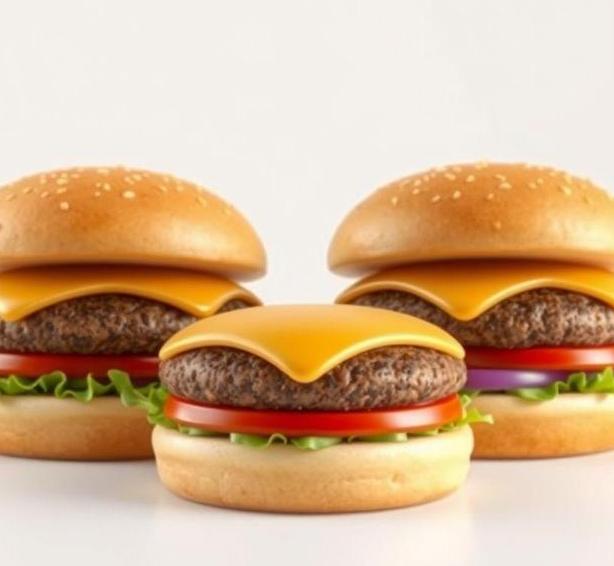When you think of the perfect hamburger, a good bun is just as important as the patty, right? It’s not only the vessel that holds all the delicious components together but also adds texture and flavor to the whole experience. Whether you’re grilling on a summer day, hosting a barbecue, or just making a quick dinner at home, hamburger buns are a must-have. But have you ever wondered how long those buns last in your pantry or fridge, and whether they can go bad?
It’s easy to overlook the shelf life of things like bread, especially when it’s something you don’t use every day. But knowing how long hamburger buns last, how to store them properly, and how to spot signs of spoilage can save you from wasting food or, even worse, getting an unpleasant surprise when you bite into a stale or moldy bun. In this guide, we’ll walk through all the details you need to know.
Can Hamburger Buns Go Bad?
Yes, hamburger buns can absolutely go bad. Like most bakery products, hamburger buns are made with perishable ingredients, which means they have a limited shelf life. Several factors can cause them to spoil, ranging from the type of bun to how it’s stored and even the conditions it’s exposed to. If you’ve left a pack of buns on the counter for weeks or just aren’t sure if the ones you’ve had in the fridge are still good, it’s important to understand what makes them go bad.
Here’s the thing about bread products like hamburger buns: they’re made with moisture, and moisture is one of the key contributors to spoilage. While they might seem fine when you first get them, they’ll eventually dry out or develop mold if left exposed to air, heat, or humidity.
Shelf Life For Hamburger Buns

When you buy hamburger buns, you might notice the "best by" or "use by" date on the package. These dates give you a general idea of how long the buns will stay at their best quality. However, the actual shelf life can vary based on several factors:
- Fresh Buns (Store-Bought): If you’ve purchased fresh hamburger buns from the bakery or grocery store, they generally last anywhere from 3 to 7 days at room temperature. After that, they may begin to dry out or develop mold.
- Pre-Packaged Buns: If you’re dealing with store-bought, pre-packaged hamburger buns, they often contain preservatives that can extend their shelf life. Typically, these buns can last 7 to 14 days in a cool, dry place. However, once you open the package, it’s best to consume them within a week.
- Frozen Buns: The best way to store hamburger buns for longer periods is in the freezer. If you freeze the buns right away, they can last anywhere from 3 to 6 months in the freezer without significant loss of quality. Just make sure they’re wrapped tightly to avoid freezer burn.
Remember, these are just general guidelines. The shelf life can also depend on the ingredients used in the buns, so buns with more preservatives will tend to last longer. But always check for signs of spoilage before deciding whether to use them.
Common Signs Of Spoilage
It’s always a good idea to keep an eye out for any signs that your hamburger buns have gone bad. A bun that’s gone bad will usually display one or more of these warning signs:
Mold
- What to look for: Mold is the most obvious and alarming sign that your buns have spoiled. Mold can appear as fuzzy spots or patches of green, blue, or white growth. It’s typically found on the surface or edges of the buns.
- What to do: If you spot mold, throw the buns away immediately. Mold can spread throughout the bread, even if it’s not immediately visible on every spot.
Dryness Or Staleness
- What to look for: Hamburger buns that are past their prime may become dry, hard, or overly crumbly. This happens when they lose moisture and become stale.
- What to do: If they’ve only slightly dried out, you can try reviving them by lightly toasting them, but if they’re too hard, it’s best to toss them.
Off Smell
- What to look for: A sour or off smell is another clear indication that your buns have spoiled. Bread that’s gone bad can emit a strange, musty, or rancid odor, especially if it’s gone past its shelf life.
- What to do: If the buns smell bad, don’t eat them. Throw them away and avoid any risk of foodborne illness.
Discoloration
- What to look for: In addition to mold, discoloration (such as brown or black spots) may also be a sign of spoilage. This could indicate that the buns have been exposed to moisture or have started to ferment.
- What to do: Discard the buns if you notice any discoloration, especially if it’s not just a small spot but widespread.
Soft, Watery Texture
- What to look for: If you notice the buns are soft or wet when they should be firm, it could be due to excess moisture or a sign of mold growth starting to develop under the surface.
- What to do: Don’t consume buns with a weird texture or excessive moisture; they’ve likely started breaking down.
How To Store Hamburger Buns?

The way you store hamburger buns can significantly impact how long they stay fresh. Here’s how you can store them to extend their shelf life and keep them from going bad too soon:
Room Temperature (Short-Term)
- Store your buns in a cool, dry place, such as your pantry or kitchen cupboard, for up to a week. Just be sure the place isn’t too warm or humid, as these factors will speed up spoilage.
- Use an airtight container or resealable plastic bag to keep the buns protected from air. If they’re in a store-bought bag, try to squeeze out as much air as possible before sealing it.
Refrigeration (Medium-Term)
- You can refrigerate your buns to extend their shelf life for up to 2 weeks, especially if you live in a humid climate where mold is more likely to develop.
- Wrap them tightly in plastic wrap or store them in a sealed bag or container. However, refrigeration can dry out buns over time, so it’s not ideal for maintaining their softness.
Freezing (Long-Term)
- Freezing is the best method for keeping buns fresh for 3-6 months. To freeze hamburger buns, wrap them individually or in groups (depending on how many you think you’ll use) in plastic wrap or aluminum foil, and place them inside a resealable freezer bag.
- If you freeze buns, they’ll stay fresh and retain their texture when thawed and toasted or heated. Just be sure to thaw them on the counter for a few hours before use, or toast them straight from the freezer.
Expert Tips
Here are a few extra tips that might come in handy when you’re dealing with hamburger buns:
- Use a Bread Box: A bread box is an excellent way to keep buns fresh at room temperature. It helps maintain proper air circulation while keeping your buns protected from light and humidity.
- Don’t Freeze and Thaw Multiple Times: If you freeze buns, only thaw them once. Freezing and thawing repeatedly can cause the texture to break down and become less appealing.
- Avoid Plastic Bags for Long-Term Storage: While plastic bags are great for short-term storage, they don’t breathe well and can cause moisture to build up, which increases the risk of mold. For long-term storage, try a bread box, paper bag, or freezer-safe plastic bag.
- Test for Freshness Before Reheating: Even if you store buns in the freezer, always check them before you heat them up. If they’ve developed freezer burn or strange odors, don’t risk it-toss them.
FAQs
Can Hamburger Buns Go Bad If Left Out?
Yes, hamburger buns can go bad if left out at room temperature for too long. Bacteria and mold can develop after a few days, especially if they are exposed to moisture or heat.
How Long Do Hamburger Buns Last After The Expiration Date?
Hamburger buns can last a few days after the expiration date if stored properly, but their quality and freshness may decline. It is recommended to consume them within 1-3 days past the expiration date if they have been kept in a cool, dry place.
What Causes Hamburger Buns To Spoil?
Hamburger buns spoil due to exposure to moisture, air, and bacteria. Mold can form when buns are kept in a humid environment, and staleness can occur from prolonged exposure to air.
How Can You Tell If Hamburger Buns Have Gone Bad?
Signs that hamburger buns have gone bad include visible mold growth, an off or sour smell, discoloration, or a hard, stale texture. If the buns feel unusually soft or mushy, they may also be spoiled.
Can You Eat Hamburger Buns Past The Sell-by Date?
Eating hamburger buns past the sell-by date is generally safe, but the quality may not be as good. If the buns are stored correctly and show no signs of spoilage, they can still be consumed, though they may be stale.
Can Hamburger Buns Go Bad In The Fridge?
While refrigerating hamburger buns can extend their shelf life, it may cause them to dry out or become stale more quickly. It’s better to store them in an airtight bag or container to prevent this.
How Long Can You Freeze Hamburger Buns?
Hamburger buns can be frozen for up to 3 months. It’s best to store them in an airtight bag or wrap them individually to prevent freezer burn and preserve their quality.
Can You Revive Stale Hamburger Buns?
Yes, you can revive stale hamburger buns by lightly toasting or heating them in the oven. You can also spritz them with water and warm them in the oven to restore some moisture.
Why Do Hamburger Buns Get Hard?
Hamburger buns become hard due to exposure to air and drying out. Storing buns in an open package or in a dry, warm environment can cause them to lose moisture, leading to a hard texture.
Is It Safe To Eat Moldy Hamburger Buns?
It is not safe to eat moldy hamburger buns. Mold can produce harmful toxins, and even if the mold is cut off, it’s possible that it has spread throughout the bun. It’s best to discard any moldy buns.